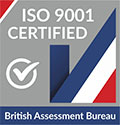When deploying to an extreme environment that could have limited food supplies, disrupted sleep, or emotional stress, it’s important the candidate is physically and psychologically fit. The U.S. Department of Defense Central Command (CENTCOM) follows standards for candidates deploying to countries including Iraq, Kuwait, Afghanistan, and North Africa, and others. These standards are annually updated, and the most recent release includes the MOD 14 standards.Â
Remote Medical International’s screening team has studied MOD 13 standards thoroughly and know that understanding the updates in MOD 14 standards is key to any deployment. Here’s what the team found in their review of the 2019 MOD 14 standards release.Â
DEFINING MOD 14
When deploying to a CENTCOM country, tending to conditions like respiratory, psychological, major medical procedures, orthopedic and cardiovascular can be difficult. Physicians in the field do not have the same equipment or resources as a regular hospital to tend to these conditions, making the MOD 14 standards extremely important for deploying candidates.Â
MOD 14 is the baseline medical standard for all personnel deploying to the CENTCOM Area Of Responsibility (AOR). The standards require proper medical evaluations, medication reviews and mental health evaluations. By following these standards, physicians ensure candidates can perform at their best when deployed and can ensure the success of the project.Â
DIFFERENCES IN MOD 14 COMPARED TO MOD 13
Released in 2017, MOD 13 primarily focused on preventative measures, clarifying conditions required to approve a medical waiver, and additionally the health concerns of transgender individuals. With small technical value changes here and there, the main difference between MOD 13 and MOD 14 is physicians now have a greater ability to recommend clearance, or no clearance, without the request of a written waiver from a CENTCOM Command Surgeon.Â
Take blood pressure for example. In MOD 13, all blood pressure cases needed a waiver. With MOD 14, if the candidate has a three-day blood pressure check less than 140/90 average, they can deploy without a waiver. However, candidates with 3 day B/P checks above the 140/90 average will need a Physician work up and potential lifestyle modification or medication addition with a minimum of 60 days documented stabilityÂ
Physicians also have more power in the initial reviewing of a candidate’s medical and psychological conditions to determine if they are fit, or not fit for deployment, and in making decisions to deploy less questionable. By using specific tests to verify an issue with a candidate, the physician can either clear them for deployment or request a waiver. MOD 14 also considers dental and behavioral health issues as a medical condition.Â
According to MOD 14, “the final authority of who may deploy to the CENTCOM AOR rests with the CENTCOM Surgeon and/or the Service Component Surgeons’ waiver authority, not the individual’s medical evaluating entity, deploying platform, or Commander.â€
ADDED WAIVERS
Waivers will be considered only if the ten qualifications are met in MOD 14. The tenth qualification was added in the updated standards and focuses on “diagnosis, management, and/or treatment of medical conditions†not placing a burden on “deployed medical assets, operational assets, or complicate the evaluation of other reasonably-anticipated illnesses or injuries.â€
TECHNICAL CHANGES
Throughout MOD 14, there were minor technical changes for the standards. Below are just a few found important to note:Â
- Under documented medical conditions, specific medical conditions and restrictions were added to MOD 14, including asthma, seizure disorder, or diabetes. For Nephrolithiasis, there are specific sizing and history of the episodes between 12 month periods and three years.Â
- Under cardiovascular conditions, blood pressure specifications and the cardiac risk requiring a waiver have been added to MOD 14.Â
- For eye, ear nose, throat and dental conditions, MOD 14 added that “orthodontics require a follow-up or adjustment while deployed. Those with wires in neutral force and are cleared by the treating orthodontist do not require a waiver.â€
- CENTCOM also added specifics for the gastrointestinal system, including Chron’s disease, ulcerative colitis, chronic hepatitis and, or, ostomy.Â
- Additional small technical changes were added to surgery, behavioral health conditions, and medications.Â
For more information about MOD 14, or to connect with one of our screening experts, please contact remotemedical.com.Â


